What are the skills needed for work integration social enterprises’ workers?

Various skills are needed for WISEs workers (enablers, managers and workers with support needs), here are the highlights of the report.
One of the research activities led in the framework of work package 1 was to map skills needs and gaps in WISEs across the 13 project partner countries. It was led in the form of an empirical analysis to map the skills needed to perform the jobs and fill the skills gaps in WISEs, with a view to profiling the training requirements of three main professional profiles, namely “enablers” (e.g., managers, area coordinators, IT specialists ); “supporters” (e.g., job coaches, tutors, and mentors) and and workers with support needs (WSNs)*. Face-to-face interviews were conducted with 403 persons (89 enablers, 145 supporters, and 169 WSNs) from a sample of around 100 WISEs in 13 countries across the EU. The investigation analyzed the available skills deemed as the most relevant for the above mentioned categories of workers and skills gaps. In addition, the reasons for such skills gaps, their effects on WISEs, and the strategies put in place to cope with them were examined.
The skills needs and skills gaps analysis highlighted four key findings.
First, the survey showcased that WISEs face specific challenges when compared to conventional companies. The level of skills endowment of all three respondent groups was rather good, with enablers and supporters particularly well aware of the broad set of skills needed to work in WISEs. The data analysis did not highlight any significant difference across countries, but it confirmed there is substantial room for improvement. Failing to fill skills gaps is regarded as particularly risky since it could jeopardize WISEs’ capacity to assist current and/or new WSNs and lead to an increased workload for staff. In other words, skills gaps could hinder the process of work integration.
Second, the various groups of respondents chose specific skills as particularly relevant. Enablers rated management skills as highly important: from designing strategies for the development of WISEs and making decisions to engaging in direct relations with employees to coordinate their activities and motivate them. Among other skills, negotiating with clients, especially private ones, was perceived as highly relevant. Supporters pointed out the multifaceted nature of work as they deal with a variety of activities, including planning work time and space, assisting and supporting WSNs in carrying out their tasks, and managing and reporting activities to their supervisors and coordinators. A mix of hard and soft skills is required, the balance of which also varies according to the specific role assumed by a supporter within an organization. However, what clearly emerged is that “assisting workers with support needs for their job” is crucial when looking at supporters. Interviews highlighted that counseling and mentoring activities, in some cases, aim to stimulate workers in their own growth at work: they favor a positive atmosphere and even touch on some personal aspects that impact work. Some interviewees felt that they have received all the necessary tools to manage the support and counseling of WSNs. There were cases in which a lack of training related to psychological aspects of the job, as well as the diverse typologies of workers’ disabilities, influenced the effectiveness of supporters’ activities. Finally, “collaborative, communicative and operational skills” were essential for WSNs to carry out day-to-day work activities with accuracy, precision, and autonomy. The importance of specific skills depended on the type of economic activity carried out, which in the sample interviewed ranged from manufacturing to administrative/office activities, catering, and waste management.
Third, when looking at enablers’ skills, the age of the organization makes a difference. Start-up WISEs need to build new skills to recruit the most suitable staff and develop effective working teams, while in more structured WISEs, the development of organizational and decision-making strategies comes to the fore.
Finally, from a comparative viewpoint, all three respondent groups considered specialized technical knowledge related to media and technology as not relevant; this can be traced back to the key role played by soft skills and other technical knowledge necessary to assist workers in carrying out their job tasks in WISEs.
Against the background of addressing skills gaps, respondents consider training activities particularly important. Based on their answers, training is primarily financed by WISEs’ own resources: most WISEs provide for training internally or support employees’ participation in external training.
Looking at the reasons behind skills gaps, enablers and supporters expressed similar opinions by identifying the shortage of economic resources as a very important factor and the lack of motivation as the least relevant reason. To tackle the scarcity of resources, one strategy is to support WISEs’ access to private funding schemes by encouraging their desire for collaboration via mutually supportive mechanisms.
An additional obstacle to filling skills gaps is the lack of time, which is typically a barrier in relation to training activities in small organizations. WISEs, especially when they are small in size, struggle to detach personnel from their required work activities. In these situations, training carried out within the organizations and combining both theoretical and practical activities can help WISEs overcome this problem.
Moreover, according to respondents, it is particularly difficult to identify the optimal training activities to improve supporters’ and WSNs’ abilities. Indeed, training activities may be stressful, especially for WSNs, when they are not fully tailored to address their specific skills gaps. Thus, it is important to invest time and energy in adapting training and education to the specific needs of recipients. Hence, individualized and targeted training designed and planned based on workers’ real needs and capabilities is crucial.
Finally, the findings of the survey underline the importance of further research on both the content and modalities of training., which will be done later in the B-WISE project.
Read the full report HERE.
The B-WISE project, Blueprint for Sectoral Cooperation on Skills in Work Integration Social Enterprises, is an Erasmus + project coordinated by EASPD with the support of ENSIE.
* E.g., people with physical and/or sensory disabilities; people with intellectual and/or learning disabilities; people with psycho-social disabilities and/or mental illness; people with substance use disorders; convicts and ex-convicts; people on long-term unemployment; homeless people; asylum seekers, refugees, and migrants; NEETs; female survivors of violence and members of ethnic minorities.










